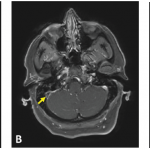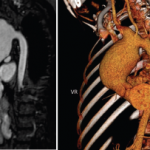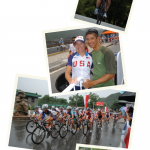Reading about the Deverses and Richardses of the world I also wonder how patients feel about the chronicles of athletes who share their condition. No doubt, some will rejoice in the success and gain inspiration as they hope for their own improvement. I am sure, however, that patients who have not done well may feel confused, despondent, or even angry, questioning why the medical system has failed them.
I live in North Carolina, which is far from the silk traders’ route. I do not expect to see any patients with Behçet’s soon, but I wonder how I would react if one, press clipping in hand, asked me why I wasn’t able to calm down his mouth sores while Richards’ had vanished. If a reporter asked me about Richards’ case, what would I say?
I suspect that much of what I learn about the lives of athletes is not true. Athletes are people, after all, and they may dissemble, embellish, or even deceive to get to center stage. However, we like to have sports heroes with whom we can connect, and so biographies may need tinkering. To balance out a Marion Jones, who shoots up with steroids on the sly, we may need a Sanya Richards, who takes thalidomide, azathioprine, or whatever else in full view.
It is time to stop philosophizing and start enjoying the Olympics. I will try to believe that, after a serious bout of Behçet’s, Richards could really do 1,500 abdominal crunches a day and vie to be the fastest woman in the world. In August, I will certainly turn on the TV to see what someone with Behçet’s could accomplish, especially in the sooty and polluted air of Beijing.
So, to Sanya Richards, all I can say as I’m writing this is that I am rooting for you in your quest. Stay healthy and take your medications, and I hope that you bring home the gold.
Editor’s Note: Richards won the gold medal for the women’s 400-meter relay and the bronze for the 400-meter.
Dr. Pisetsky is physician editor of The Rheumatologist and professor of medicine and immunology at Duke University Medical Center in Durham, N.C.



